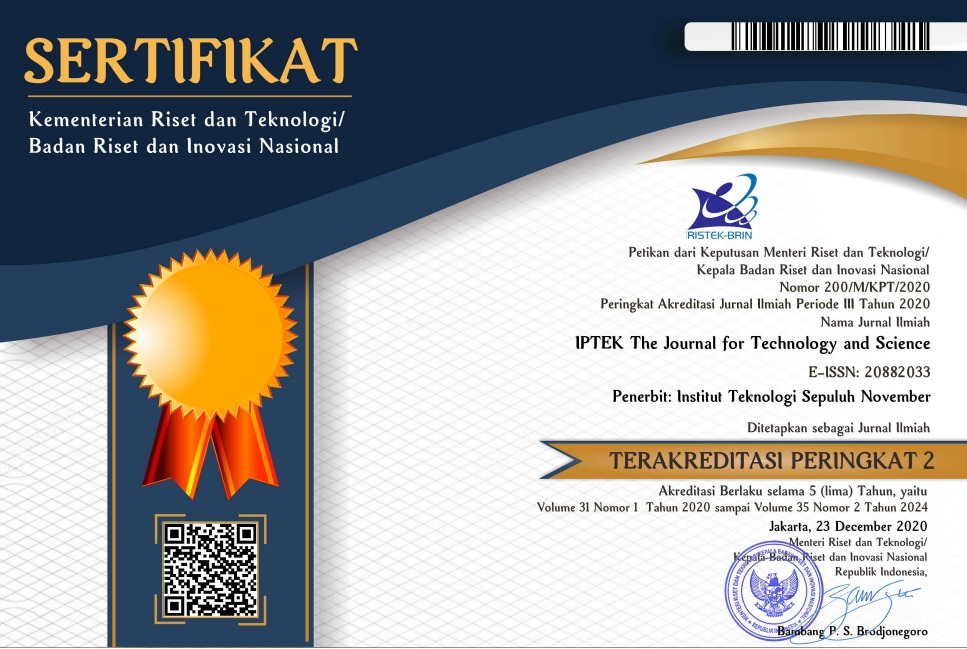Corellation Between Achievement Motivation and Entrepreneurial Leadership Quality: Meta Analysis
Abstract
Keywords
Full Text:
PDFReferences
Antoncic, Bostjan, “The entrepreneur’s general personality traits and technological developments”, Proceeding of World Academic of Science, Vol.41, ISSN : 2070-3740.
R. D. Arvey, et. al., 2006, “The determinant of leadership role occupancy: genetic and personality factors”. The Leadership Quarterly 17, 1– 20.
Branstatter, Hermann, 1997, “Becoming an entrepreneurship – a question of personality structure ?”, Journal of Economic Psychology 18, pp. 157-177.
G. J Byrne & F. Bradley, 2007, “Culture's influence on leadership efficiency: how personal and national cultures affect leadership style”, Journal of Business Research 60, pp. 168–175
Ciavarella, Mark A. et. al.l., 2004, “The Big Five and venture survival: Is there a linkage ?”, Journal of Business Venturing 19, pp. 465-483.
M. Cilendo & A.S. Kritikos, 2008, “Is entrepreneurial success predictable? an exante analysis of the character-based approach”, KYKLOS,Vol.61,No.2, pp. 189-214.
K. A Gima & A. Ko, 2001, “An empirical investigation of the effect of market orientation and entrepreneurship orientation alignment on product innovation”, Organization Science 12, pp. 54-74.
Y. Gurol & N. Atsan, 2006, “Entrepreneurial characteristics amongst university students”, INFORM Global 48, pp. 25-38.
L. Gumusluoglu & A. Ilsev, 2009, “Transformational leadership, creativity, and organizational innovation”. Journal of Business Research 62, pp. 461-473.
V. Gupta, MacMillan, Ian C, & Gita Surie, 2004, “Entrepreneurial leadership: Developing and measuring a crosscultural construct”. Journal of Business Venturing 19, pp. 241–260.
A. H. B Hoogh, et. al., 2005, “Leader motives, charismatic leadership, and subordinates’ work attitude in the profit and voluntary sector”. The Leadership Quarterly 16, pp. 17–38.
Joyce Nga & G. Shamuganathan, 2010, “The influence of personality traits and demographic factors on social entrepreneurship start up intentions”, Journal of Business Ethics 95, pp. 259-282.
N. Nicholson, 1998, “Personality and entrepreneurial leadership: a study of the heads of the UK’s most successful independent companies”, European Management Journal Vol. 16, No. 5, pp. 529–539.
H. Oosterbeek, M. Praag & A. Ijsselstein, 2010, “The impact of entrepreneurship education on entrepreneurship skills and motivation”, European Economic Review 54, pp. 442-452.
D. A. Okhomina, 2003, “Entrepreneurial postures and psychological trait: The sociological influences of education and environment”, Research in Higher Education Journal.
E. S. Rodermund, 2004, “Pathways to successful entrepreneurship: Parenting, personality, early entrepreneurial competence, and interests”, Journal of Vocational Behavior 65, pp. 498–518.
E. B. Roberts, 1989, “The personality and motivations of technological entrepreneurs”, Journal of Engineering and Technology Management, 6, pp. 5-23.
L. Shao & S. Webber, 2006, “A cross-cultural test of the ‘five factor model of personality and transformational leadership”, Journal of Business Research 59, pp. 936-944
S. E. Strang & K. W. Kuhnert, 2009, “Personality and leadership developmental levels as predictors of leader performance”, The Leadership Quarterly 20 , pp. 421–433
Vecchio & P. Robert, 2003, “Entrepreneurship and leadership: Common trends and common threads”, Human Resource Management Review 13, 303–327.
H. K. Won, 2006, “Links between personalities and leadership perceptions in problem solving groups”, The Social Science Journal 43, pp. 659–672.
J Wincent & D. O¨ rtqvist, 2009, “A comprehensive model of entrepreneur role stress antecedents and consequences”, Journal Bus Psychol 24, pp. 225–243.
Z. Zhang, et.al., 2009, “The genetic basis of entrepreneurship: Effects of gender and personality”, Organizational Behavior and Human Decision Processes 110, pp. 93–107
J. E. Hunter & F. L. Schmidt, 2004, “Methods of meta analysis: Correcting error and bias in research findings”, Newbury Park: Sage Publication.
DOI: http://dx.doi.org/10.12962%2Fj20882033.v21i4.49
Refbacks
- There are currently no refbacks.
IPTEK Journal of Science and Technology by Lembaga Penelitian dan Pengabdian kepada Masyarakat, ITS is licensed under a Creative Commons Attribution-ShareAlike 4.0 International License.
Based on a work at https://iptek.its.ac.id/index.php/jts.


